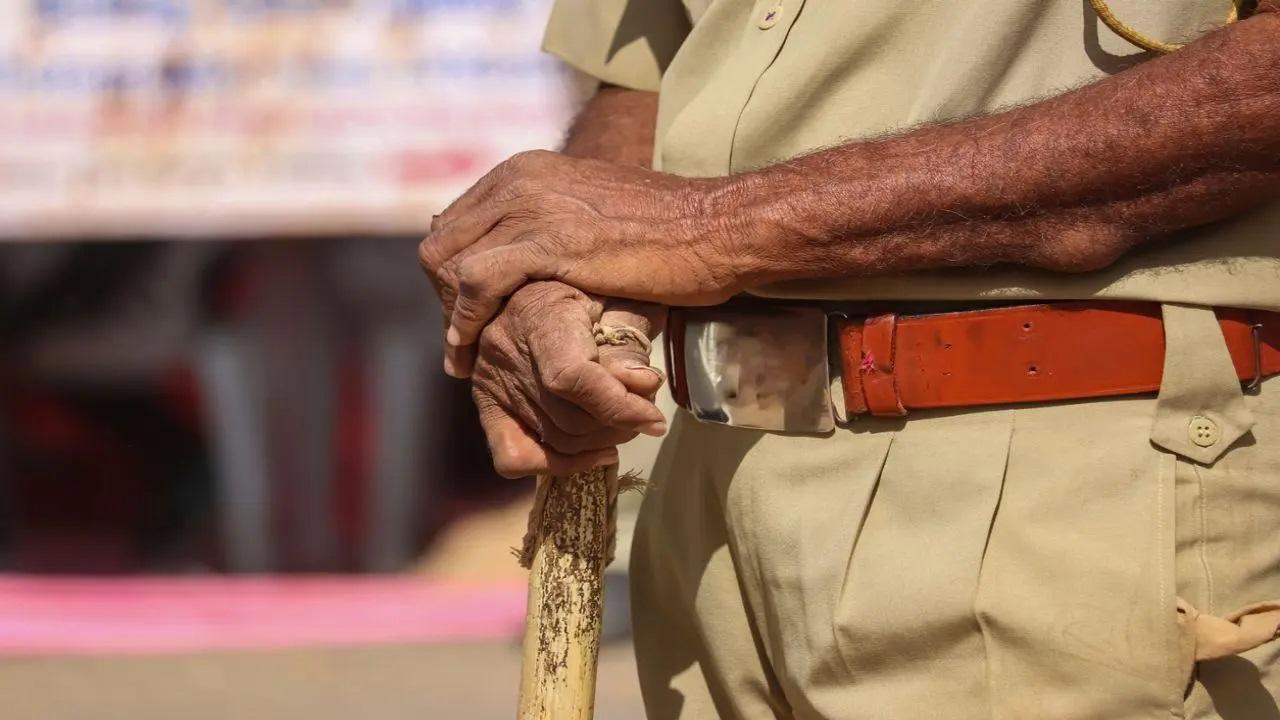Amid growing backlash against Maharashtra government’s revised management quota policy, the Yuva Sena – Shiv Sena’s youth wing – called for immediate rollback of the decision allowing institutions to charge two to three times the regular fee for professional courses under the quota
On Tuesday, a delegation of the Yuva Sena, from Mumbai University, submitted a formal memorandum to Higher and Technical Education Minister Chandrakant Patil in this regard.Formal memorandum. (PIC/ SPECIAL ARRANGEMENT)
The opposition comes amid the ongoing admission process for the academic year 2025–26, conducted through the Maharashtra State Common Entrance Test (CET) Cell. Yuva Sena Senate member Pravin Chavan and former Senate member Rajan Kolambekar led the charge, with support from Shiv Sena (Uddhav Balasaheb Thackeray) leader Anil Parab, highlighted the growing financial burden on students who narrowly missed out on merit-based seats.Yuva Sena member Rajan Kolambekar. (PIC/ SPECIAL ARRANGEMENT)
“This policy is unjust. Deserving students who missed the general merit list by a small margin are now being denied access to higher education simply because they cannot afford these inflated fees,” stated the Yuva Sena representatives in their memorandum.
Earlier, the government had permitted colleges to admit two to three additional students under the management quota without charging tuition fees in a bid to support meritorious students from economically weaker backgrounds. However, that provision has now been revoked, drawing sharp criticism from student bodies.
What is management quota?
Under the management quota, private colleges are legally allowed to reserve a certain percentage of seats, which can be filled at the discretion of the institution. The admission process for these seats often involves higher fee, direct interviews, or donations rather than strict entrance exam merit.
For instance, if the standard annual fee for a course is Rs 4 lakh, colleges can charge up to Rs 8–12 lakh from management quota students. This has raised concerns about accessibility and equity in higher education.
Allegations of legalised donation practices
The student body strongly objected to what it termed as the “legalisation of donation culture”.
“Previously, when colleges took donations for admissions, many were penalised by the Anti-Corruption Bureau (ACB). Now, the same institutions are being given official permission to charge excessive fees, indirectly encouraging corruption and malpractice,” the Yuva Sena statement read.
The student wing further demanded that institutions which have already collected inflated fee from management quota students should be instructed to refund the additional amount and that the government must immediately withdraw this policy.
State’s response: Fee Regulation Authority to tighten oversight
Speaking to mid-day.com, Advocate Dharam Mishra, an official from the Maharashtra government’s Department of Legal Affairs and member of the Fees Regulating Authority (FRA), clarified the legal provisions, stating, “Medical colleges have long been authorised to charge up to three times the regular fee for management quota seats. This provision was extended to all Higher and Technical Education streams following a High Court directive. The FRA had sanctioned this policy in 2018, allowing colleges to charge up to three times the Institutional Quota (IQ) fee for local students and up to five times for NRI students.”Advocate Dharam Mishra. (PIC/ SPECIAL ARRANGEMENT)
Mishra admitted that until recently, compliance with management fee regulations were lax. However, the FRA has now mandated all institutions, including those in engineering, pharmacy, and other technical streams, to submit detailed fee records for management quota admissions.
“It remains the responsibility of each college to ensure that no extra charges are levied beyond the approved fee structure. The FRA will continue monitoring to ensure fairness and accountability,” he added.
Call for equity and transparency
While the government cites legal provisions and regulatory frameworks, the Yuva Sena delegation has argued that the policy undermines access to education for bright, underprivileged students and promotes an exploitative fee culture.
The student body has called on Minister Chandrakant Patil to withdraw the triple-fee policy, reinstate the zero-fee provision for deserving students, and ensure that no student is denied admission solely due to financial incapacity.
As the debate heats up, all eyes are now on the state education ministry and the FRA to see if corrective action is taken, or if the system continues to tip in favour of deep pockets over deserving talent.
Seats can be bought, but not merit: Students, parents question quota
Speaking to mid-day.com, a 22-year-old BTech student from KC College in Thane voiced frustration over the management quota system, stating, “A student who worked hard and scored 87 per cent was left out, while another with just 70 per cent got through the management quota. That doesn’t feel fair.”
A final-year IT student from Don Bosco Institute of Technology, Mumbai, echoed similar concerns.
“The management quota goes against merit and hard work. Can a student who simply paid more fees become a better engineer than the one who studies hard?
Bringing in students through a `paid` quota is like selling seats. If a student couldn`t qualify on merit, how will they manage the course load?” she questioned.
Parents also raised objections, stating that such quotas undermine academic integrity.
“Colleges charge exorbitant amounts in the form of management quota, which is totally unacceptable. The fact is that only the lower-income family kids make a herculean effort to study hard and score high, as the rich know that their futures are already secured. Hence, charging a deserving student under the management quota is really unfair and inappropriate,” said Roy, a parent whose daughter studies in Don Bosco Institute of Technology.
“Money can buy you a seat, but not intelligence. Only hard work helps a student succeed, never just money,” said another parent.
However, not all views are critical.
Shubham, a student from KC College in Thane, shared a different perspective.
“This quota gave me an opportunity I wouldn’t have otherwise had. It helped me secure admission into a good college where I believe I can build a strong career,” he said.
Adding an academic viewpoint, a professor from a Mumbai college offered a more neutral take.
“The management quota doesn’t take away someone else’s seat. It exists as a separate allocation and is, in that sense, harmless.”











